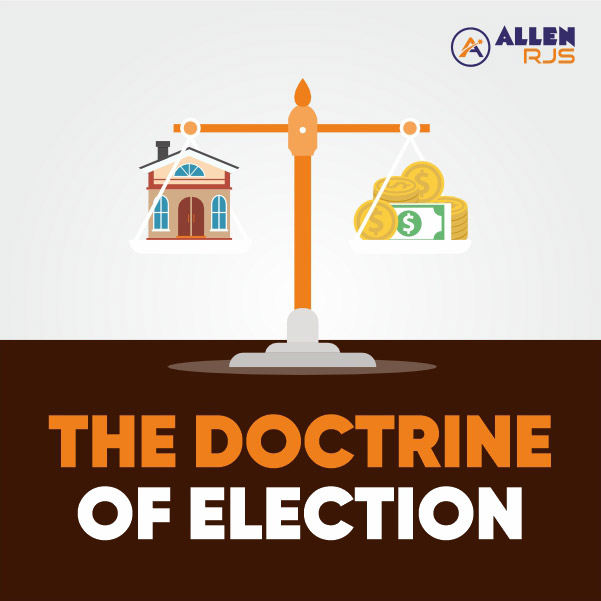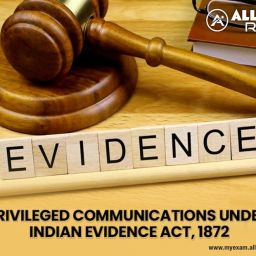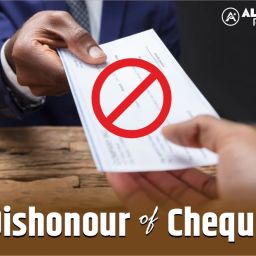Doctrine of Election
SECTION 35, TPA:-
- Where a person professes to transfer a property not his own, and
- In lieu of transfer, the transferor confers certain benefits upon the owner of the property, and
- The two things, i.e., transfer of property and conferring of the benefit, for part of same transaction.
- Then, the owner of property is bound to elect (chose) either
- to take the benefit and transfer his property or
- retain his property and give up the benefit.
Section 35 incorporates the doctrine of election. Election means choosing between 2 inconsistent rights.
The doctrine which is based on equity is applied to every species of instrument whether deed or will and to every kind of property movable or immovable. The Latin maxim “quod approbo non reprobo” means that ‘no one can approbate and reprobate.’ In other words, a person cannot accept a thing and reject another in the same instrument. For the first time, doctrine of election was elaborately explained by Lord Hather in the case of Cooper v Cooper (1874).
Illustration:
By a deed X (transferor) gives to Y (transferee) a farmhouse belonging to Z (owner), and by the same deed gives Rs. 50 lakhs. Now, Z is put to election that means Z has to choose whether he wants to take Rs. 50 lakhs by giving his farmhouse to Y or not. In this case, Z is entitled to R. 50 lakhs only when he conforms to all the provisions of the deed by renouncing his rights in the farmhouse and by giving it to Y.
In the matter of Mohd. Kader Ali Fakir V Lukman Hakim it was held that the basis of the doctrine of choice is that the person who uses the instrument must also bear the burden imposed in this way and that he cannot carry under and against the same instrument.
The ‘doctrine of election’ is a branch of ‘rule of estoppel’, in terms whereof a person may be precluded by his actions or conduct or silence when it is his duty to speak, from asserting a right which he otherwise would have had. (National Insurance Company v. Masan & Anr.)
In the case of Mst. Dhanpatti v Devi Prasad and others, the Supreme Court established the necessary requirements for the doctrine of election
The Following Are the Prerequisites for the Application of the Election Doctrine:
- In order for a property to be transferred, the transferor must claim possession of the property being transferred.
- In order for a transfer to be legal, the owner of the property being transferred must get some kind of benefit from the transferor.
- This is a two-part transaction: transferring something and receiving something in exchange for it.
- The property owner must get the benefit directly.
- The benefit must be provided to him in a similar manner as he now holds ownership of the property.
Right of Disappointed Transferee:
When the owner elects against the transfer, the transferee to whom the property was professed to be transferred gets disappointed. There may arise 2 situations:
- When the transfer is gratuitous, i.e., without consideration (gift) and transferor dies or becomes incapable of making fresh transfer and,
- When transfer is for consideration(sale, lease, etc.), whether the transferor is alive or dead at the time of election,
The transferee is entitled to get reasonable compensation from the transferor or his representative. The rule applies whether the transferor believes property to be his own or not.
When a Person Chooses to Confirm:
A person may expressly confirm the transfer through words or implicitly through conduct. It all depends on the owner of the property who receives the benefit in question. The owner must make an election in order to accept the benefit, which confirms the transfer.
By communicating the owner’s willingness to give up ownership of the transferred interest in exchange for the advantage received, this acceptance of benefit confirms the transaction. The owner must be aware of his obligation to elect for such receipt of advantage to constitute an election in favor of the transaction, nevertheless. Owner is fully aware of the factors that could influence a reasonable man’s decision while making one.
Time Limit for Election
If within two years the owner or his representatives fail to express their dissent or reject the benefits conferred upon them, then such transfer is deemed to be confirmed in favor of the transfer.
If the owner waives enquiry into circumstances then, a presumption of election may arise by the conduct of the owner. Such presumption also constitutes as implied election.
It Arises Where:
The owner has enjoyed the benefit for two years without doing any act of refusal or dissent of the transaction. Where the owner of property exhausts or consumes the benefit. Thus, whether he has done some act which renders it impossible to place the parties (interested in property) in same condition as before.
Who Need Not Elect?
A person taking a benefit indirectly under a transaction need not to elect.
Illustration:
A professes to transfer C’s property to B and gives Rs. 5,000 to wife of C. This is not direct benefit to C and therefore, C does not have duty to elect.
Person has 2 different capacities but under circumstances they are merged in one person, then he may accept the benefit in one capacity and reject the other part of instrument in another capacity.
Illustration:
Birla Mandir (Owner & Trustee) – Jugal Kishore Birla
Requisition to Elect
After one year if the owner fails to elect, then the transferor may require him to make such election. In case the owner does not elect within a reasonable time after such requisition he is deemed to have elected in favor of such requisition.
Suspension of Election
The owner may be legally unable to vote in some situations, such as when they are minors or mentally incompetent. In such case the election is postponed till the disability ceases or until election is made on his behalf by competent authority.
Conclusion
Election is a decision made between two options or rights that conflict. The applicant is not allowed to exercise both rights; the receiver must choose between two different rights.
In essence, this means that the recipient is also bearing the burden. Originating from the equity principle, this categorically states that one cannot have benefited from both sides.
Click here to know more about ALLEN ACE RJS Course




